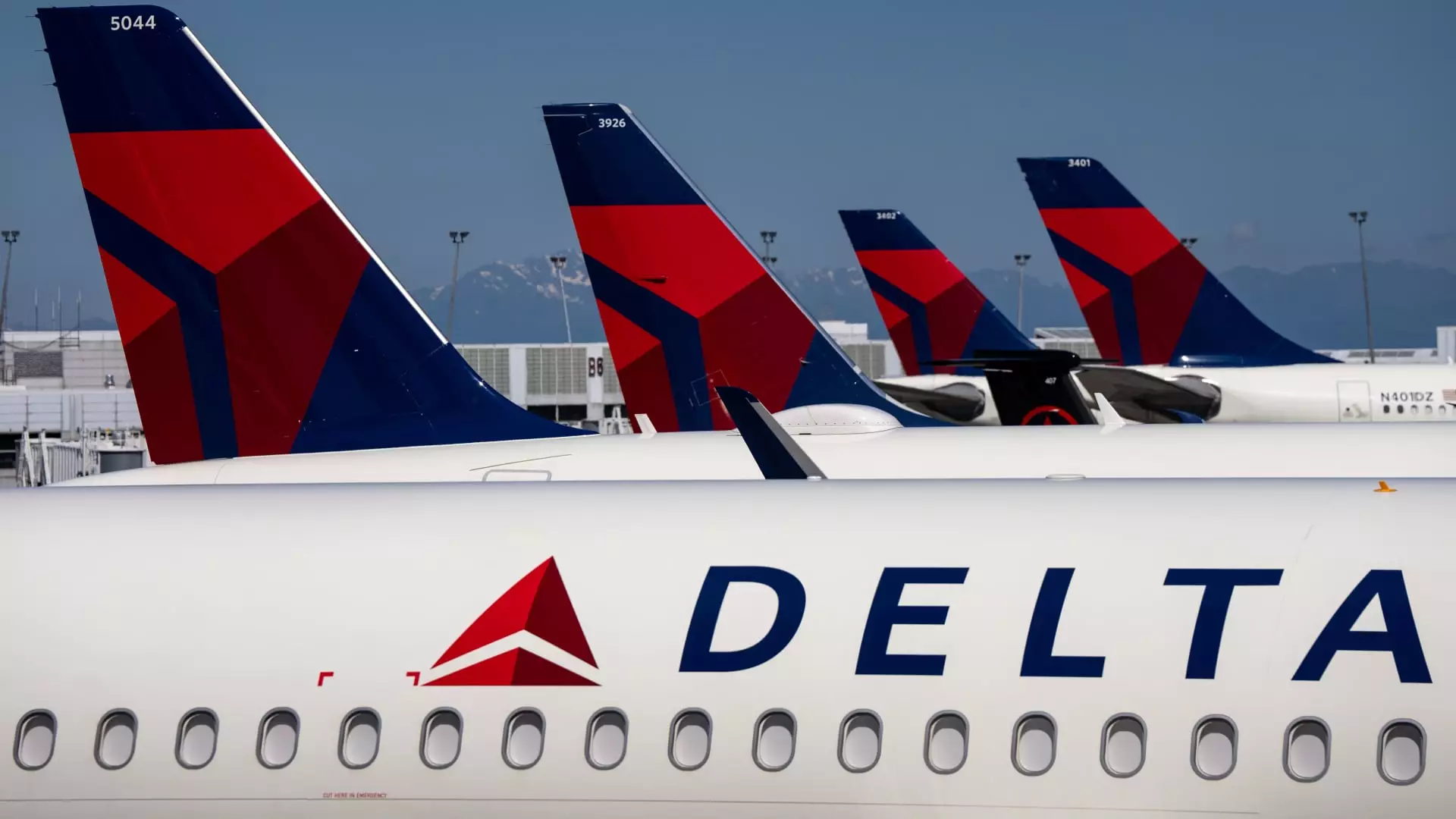While the aviation sector appeared to soar high with optimism in early 2025, Delta Air Lines has revealed a harsher reality that starkly underscores the divide between policy and practice. The airline’s CEO, Ed Bastian, decried the Trump administration’s trade policies as “the wrong approach,” revealing a vulnerability in the airline sector tied directly to political maneuvers. Delta’s decision to refrain from expanding its flying capacity is not merely a corporate strategy but a sobering acknowledgment of the economic headwinds generated by fluctuating trade dynamics. In an era where globalization once paved the way for abundant opportunities, misguided tariffs and an aggressive stance on trade negotiations have shifted consumer and corporate confidence, sending tremors through an industry once characterized by resilience.
Disappointment Amidst Optimism
Despite the initial high hopes for a strong 2025 season, Delta’s downward forecast leaves analysts and investors rattled. The prediction that second-quarter revenues might decline up to 2% or hover possibly around zero growth is glaringly below Wall Street’s expectations for a 1.9% boost. It’s a clear indication that the airline has not only read the mood of the market but is also responding to a deteriorating landscape for passenger travel. In a time when travelers typically book flights with enthusiasm, Delta reports a significant slowdown in both leisure and corporate travel. Undoubtedly, this reflects a growing trepidation among consumers and businesses alike, as geopolitical uncertainties loom large.
Financial Forecast: A Cautionary Tale
Delta’s revised earnings forecast also lays bare a stark dichotomy between expectation and reality, as the projected adjusted earnings per share have dwindled below analyst estimates. While corporate projections are critical in setting market expectations, the airline’s retreat shows that it’s not just about the numbers. The underlying message is about consumer sentiment—how many would rather opt for local getaways than depend on international travel, given the current tumultuous environment. It’s an ironic twist for the airline dubbed the most profitable in the United States; what once appeared to be a flight towards further improvement now resembles an emergency landing.
Corporate Travel: A Fragile Foundation
As Bastian pointed out, corporate travel bookings have also taken a hit. Companies, reevaluating their travel policies in response to lower confidence levels, are thinking twice before green-lighting business trips. This hesitation isn’t merely about budgets; it reflects a broader societal shift where companies must weigh the necessity of travel against the backdrop of volatile trade policies and economic unpredictability. This rethinking of corporate travel means fewer seats filled on planes, translating into less revenue for an industry that thrives on full flights.
A Lesson in Market Adaptability
Delta’s decision to maintain a steady capacity instead of pursuing aggressive expansion signals a strategic shift towards precaution over ambition. In emphasizing “what we can control,” as Bastian articulated, Delta showcases a commendable understanding of market adaptability. This change in operation is not just a defensive maneuver; it’s a crucial lesson for the business world at large about the importance of assessing external variables. When leadership prioritizes maintaining margins and cash flow amidst economic turbulence, it reveals the foresight necessary to navigate through uncertainties, an essential quality in today’s complex business environment.
Competition in the Skies: A Broader Impact
Delta is just the first player in the airline industry to face this conundrum, with competitors like United, American, and Southwest poised to announce their earnings soon. The intertwining currents of trade policy and consumer demand will be a focal point for all airlines, as Delta’s performance serves as a bellwether for overall market trends. The real question remains: as Delta attempts to safeguard its position, will other airlines follow suit, or will they gamble on uncertain growth? What is clear is that the winds of change are blowing, and those who fail to adapt may find themselves struggling for the same precious passenger dollars Delta is striving to secure in these uncertain times.

